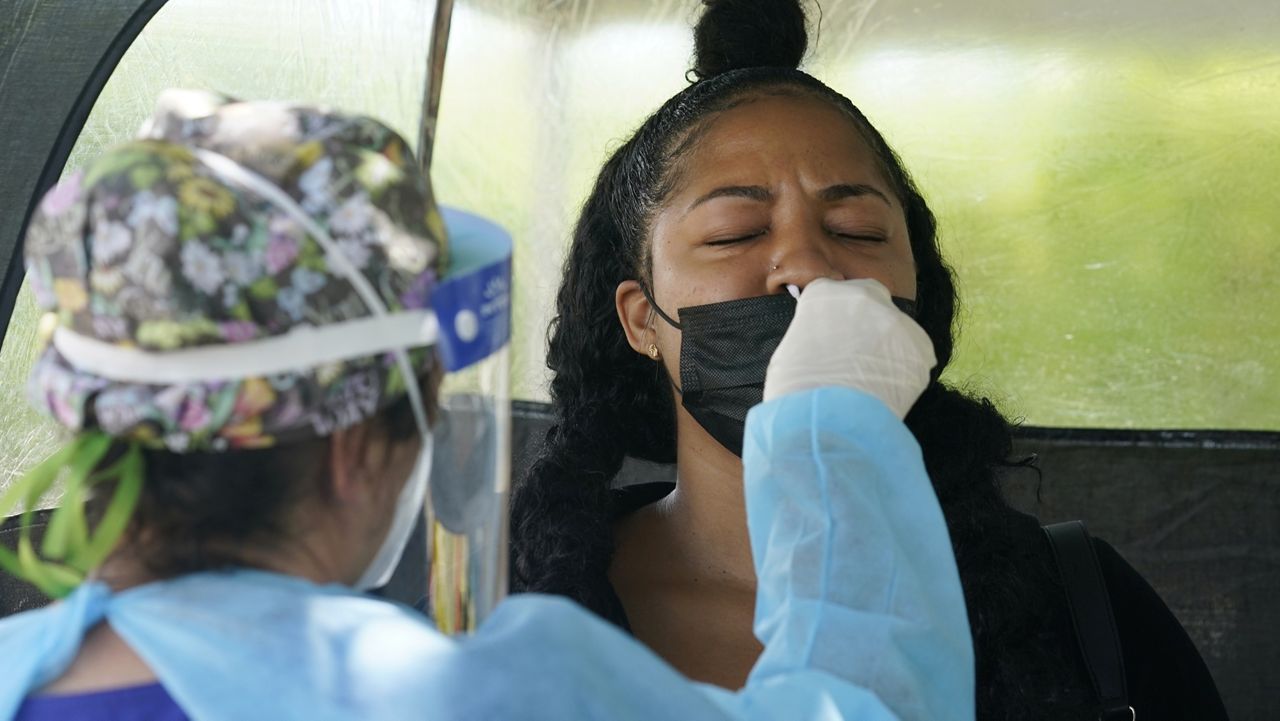As COVID-19 continues to rage, driven largely by the highly contagious delta variant, one-third of all U.S. cases reported in the past week were in two states: Texas and Florida.
The two states accounted for roughly a third of all new COVID-19 cases in the country last week, White House COVID-19 response coordinator Jeff Zients said during a news briefing on Monday.
"In fact, seven states with the lowest vaccination rates represent just about 8- 1/2% of the US population, but account for more than 17% of cases, and one in three cases nationwide occurred in Florida and Texas, this past week," Zients said.
According to data from the Centers for Disease Control and Prevention (CDC), just 49.7% of the U.S. population is fully vaccinated. The United States just hit President Joe Biden's July 4 goal of 70% of U.S. adults with at least 1 shot on Monday, about a month after the intended goal date.
“We remain concerned about the continued rise in cases driven by the delta variant,” Zients said. “These cases are concentrated in communities with lower vaccination rates.”
"There are still about 90 million eligible Americans who are unvaccinated," Zients added. "And we need them to do their part, roll up their sleeves and get vaccinated. Each and every shot matters."
Florida reported 21,683 new cases of COVID-19 on Friday, the state’s highest one-day total since the start of the pandemic. The next day, the Sunshine State broke a previous record for hospitalizations, with 10,207 people hospitalized with confirmed COVID-19 cases.
Texas last Wednesday reported more than 10,000 new cases. As of Tuesday 6,853 Texans are being treated for the virus in hospitals.
Both states have Republican governors who have resisted further public health protections.
Texas Gov. Greg Abbott last week issued an executive order prohibiting cities and other state government entities from enacting mask or vaccine mandates in order to provide protection from COVID-19.
“Today’s executive order will provide clarity and uniformity in the Lone Star State’s continued fight against COVID-19,” Abbott wrote. “The new Executive Order emphasizes that the path forward relies on personal responsibility rather than government mandates.”
In Florida, Gov. Ron DeSantis, along with the state legislature, has limited local officials’ ability to impose measures designed to stop the spread of COVID-19. This despite the fact that the state has become the new national epicenter for the virus, accounting for around a fifth of all new cases in the U.S. The seven-day moving average for new COVID-19 cases for the state sits at nearly 16,000 a day.
“Earlier, everybody was wearing masks and everything,” Orange County resident Malcolm DeNeal said. “Now people are just going about their business without masks and crammed in everywhere, so we’re worried. So, we’ve come to get tested.”
In Texas, Democratic lawmakers recently called on Gov. Abbott to reverse his position and allow school districts to mandate on-campus mask usage and provide funding in order that virtual learning opportunities can be expanded. His recent executive order signals he has no intention of reversing course.
Texas on Monday reported 3,781 new confirmed cases of COVID-19, 577 new probable cases and four new fatalities attributed to the virus.
Georgetown University researchers recently identified five large clusters of undervaccinated counties in the U.S., the largest of which comprises a large portion of Texas, extending roughly from the central part of the state through the Panhandle.
Health experts continue to stress that vaccines are safe, effective and the best weapon we have available to mitigate the spread of the disease.
The Associated Press contributed to this report.



